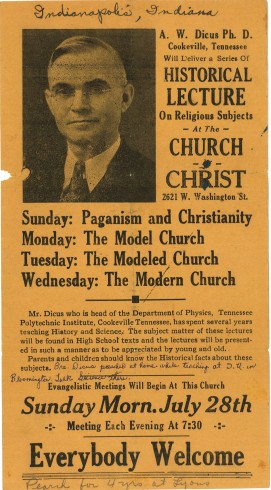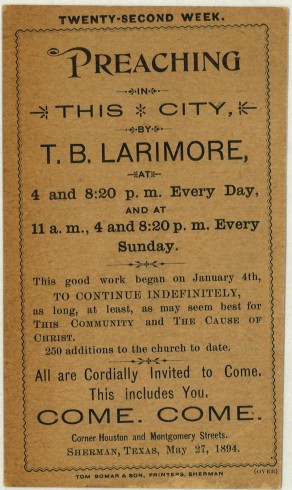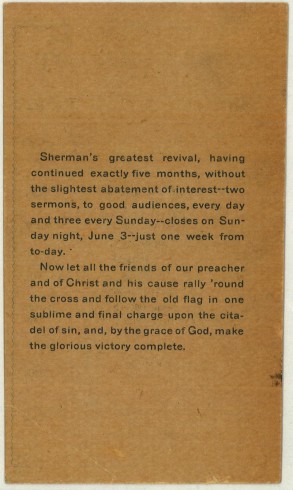ACU Special Collections and Archives actively seeks materials from, by and about the Restoration Movement from its earliest days to the present. We hold books, periodicals, ephemera, photographs, audio and video recordings, archival materials and artifacts.
Books and periodicals: Ideally we will preserve one copy in as pristine a condition as we can locate. Where we have two copies, one will be available to researchers as a ‘use copy’ while the other is kept as a ‘preservation copy.’ We are always looking to 1) fill in gaps in our collection; 2) to acquire better-condition copies; and 3) acquire signed or inscribed copies. In outstanding cases we will retain additional signed or association copies.
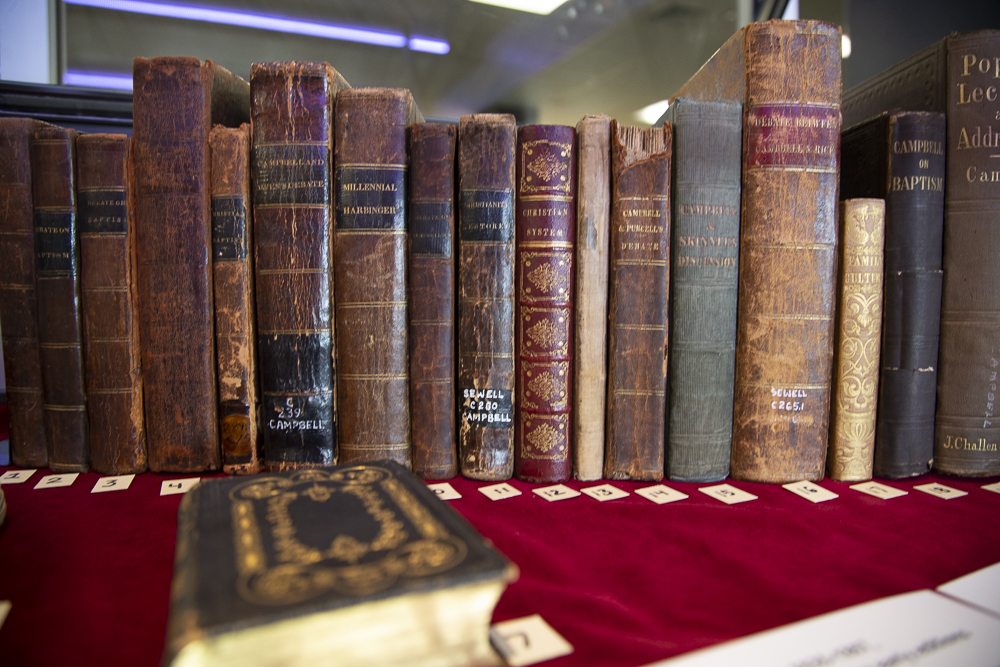
Several first editions of the works of Alexander Campbell. Abilene Christian University Special Collections and Archives, Brown Library. Abilene Christian University, Abilene, TX.
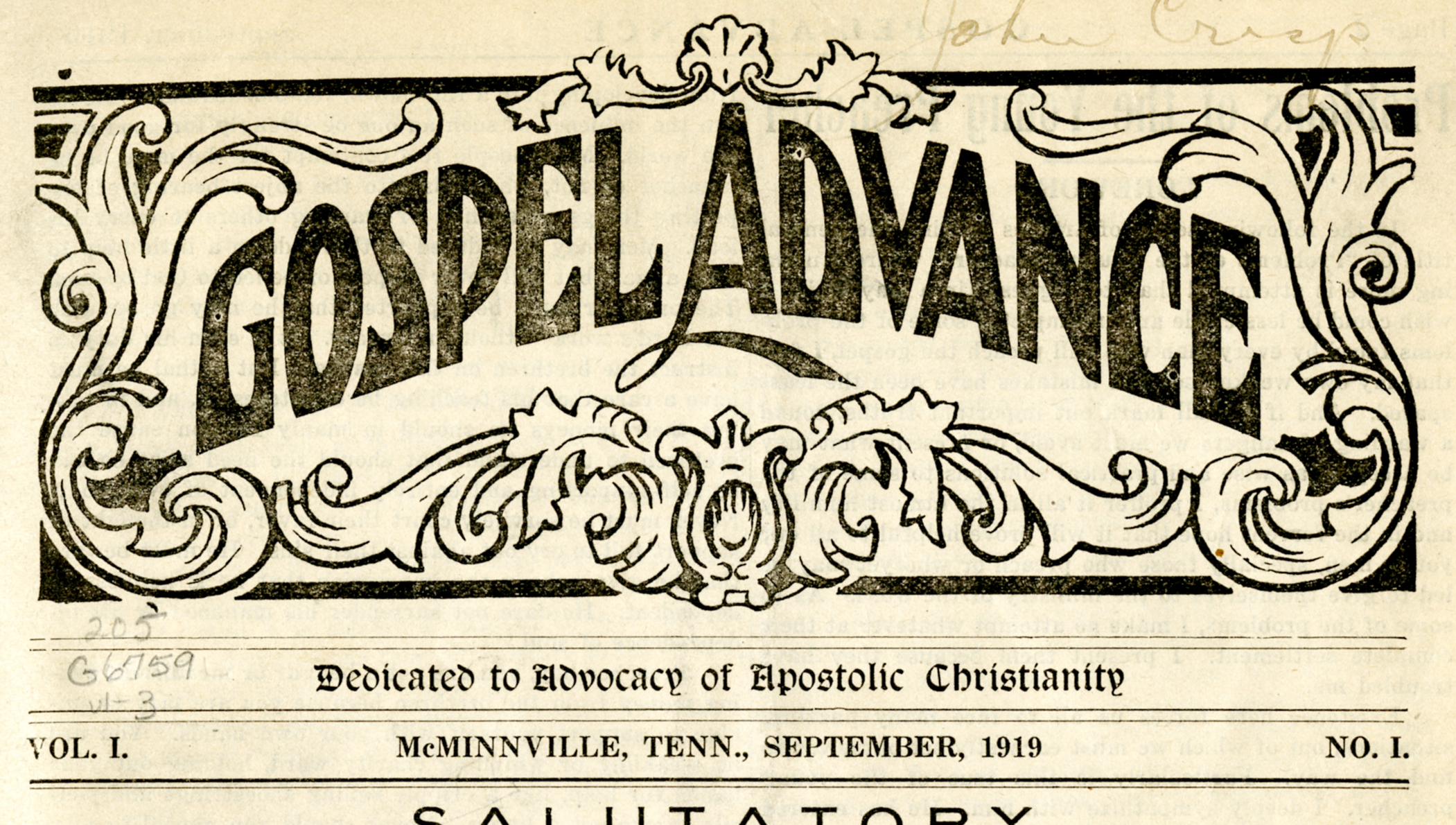
Masthead, Gospel Advance, September 1919, vol. 1 no. 1. Edited and published by Price Billingsley. Abilene Christian University Special Collections and Archives, Brown Library. Abilene Christian University, Abilene, TX.
Ephemera and photographs: Printed for the moment then cast aside, ephemeral items open a window into our history that is, regrettably, seldom preserved. Broadsides, leaflets, posters, advertising cards, clippings and the like can help us understand moments that comprise our history. Photographs, portraits, snapshots, and slides document the moment without using words.
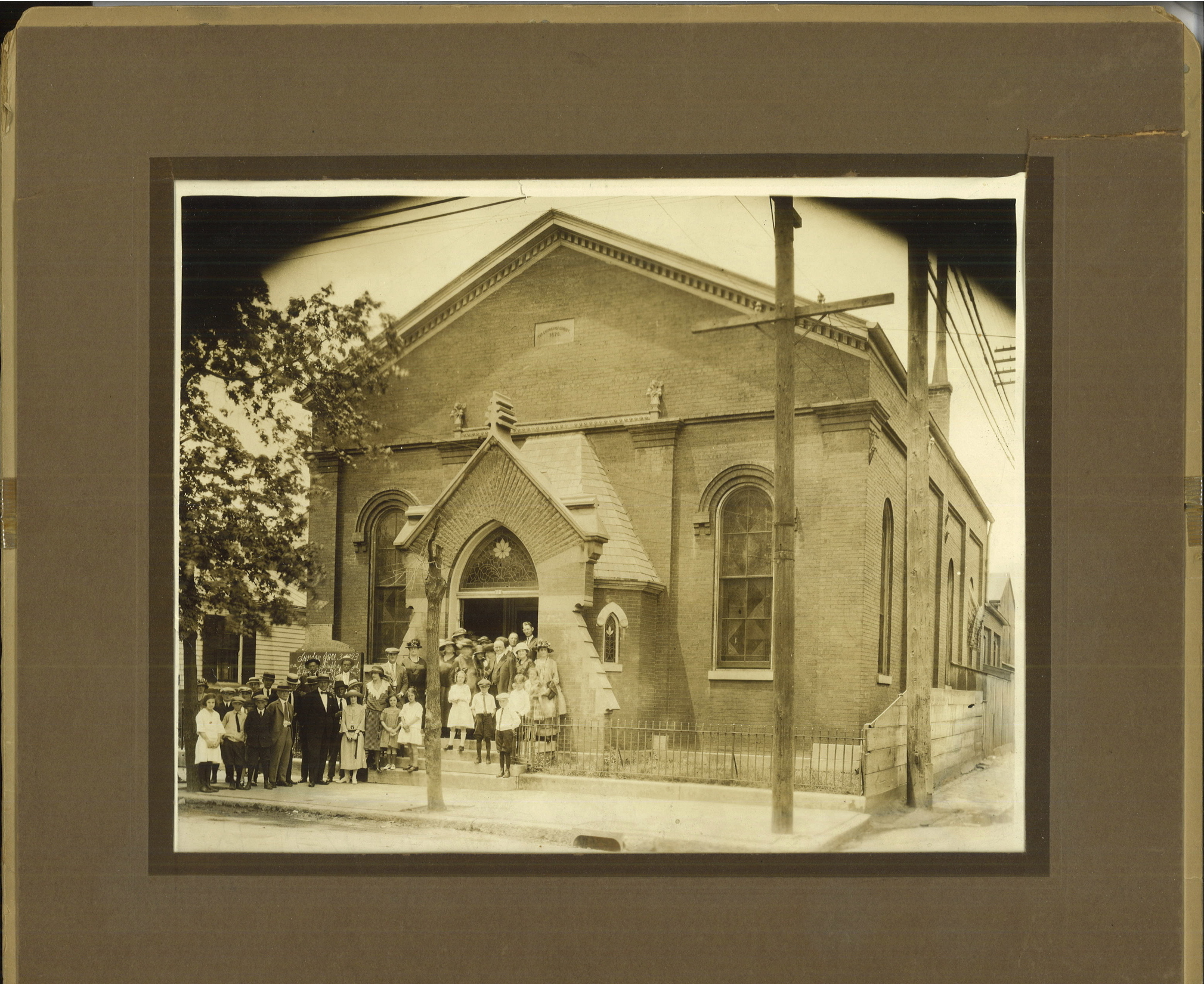
Campbell Street Church of Christ, Louisville, KY. 3 June 1923. Abilene Christian University Special Collections and Archives, Brown Library. Abilene Christian University, Abilene, TX.
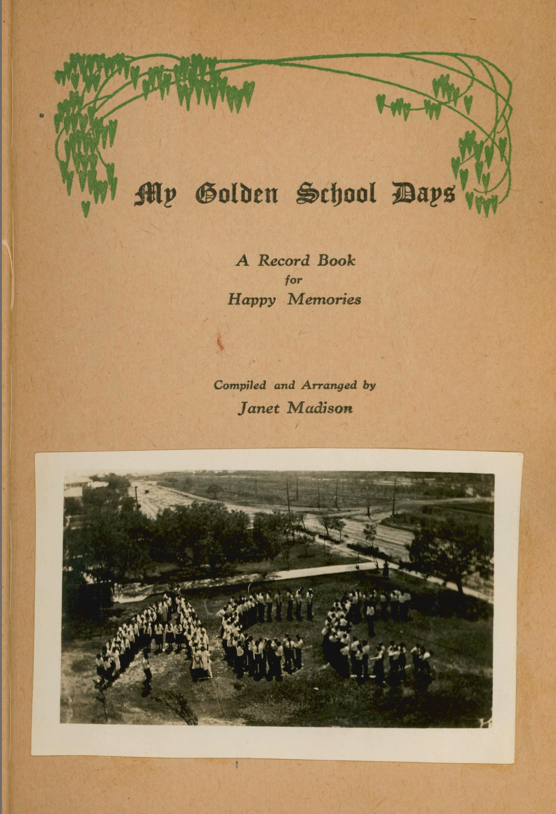
Scrapbook, Box 1, Folder 1, Mable Fuchs Papers, 1920-1921. Center for Restoration Studies MS #445. Abilene Christian University Special Collections and Archives, Brown Library. Abilene Christian University, Abilene, TX.
Audio and Video Recordings: We estimate that we hold over 15,000 recordings in a variety of formats (from magnetic tape reels to phonograph records to cassettes to VCR tapes and DVDs). Listen below to Lynn Anderson’s sermon Ride the Wild Horses:
Listen below to Zelma Stroop remember David and Margaret Lipscomb:
Archival material: We currently house just under 490 collections of personal papers of ministers, evangelists, professors, editors and missionaries. Each set is as different as its creator. Some are rich in sermons or correspondence, others in manuscript materials and some contain records from congregations or organizations. Many have a little of everything. Congregational records include minutes books, selected bulletins, membership rosters, and directories.

Letter from Carl Ketcherside to Stanley Paregien, 11 February 1970. Abilene Christian University Special Collections and Archives, Brown Library. Abilene Christian University, Abilene, TX.

Letter of Recommendation for both G.W. Varner and A.V. Varner signed by the entire congregation. Abilene Christian University Special Collections and Archives, Brown Library. Abilene Christian University, Abilene, TX.
Artifacts: The iconic pulpit used by Thomas Campbell at Ahorey (Ireland) Presbyterian Church may be our most recognizable artifact. But we have communion ware from the 19th and early 20th centuries, a pew from the Madison, TN Church of Christ and artifacts from across the world from several missionaries. These items tell yet another side to the story.
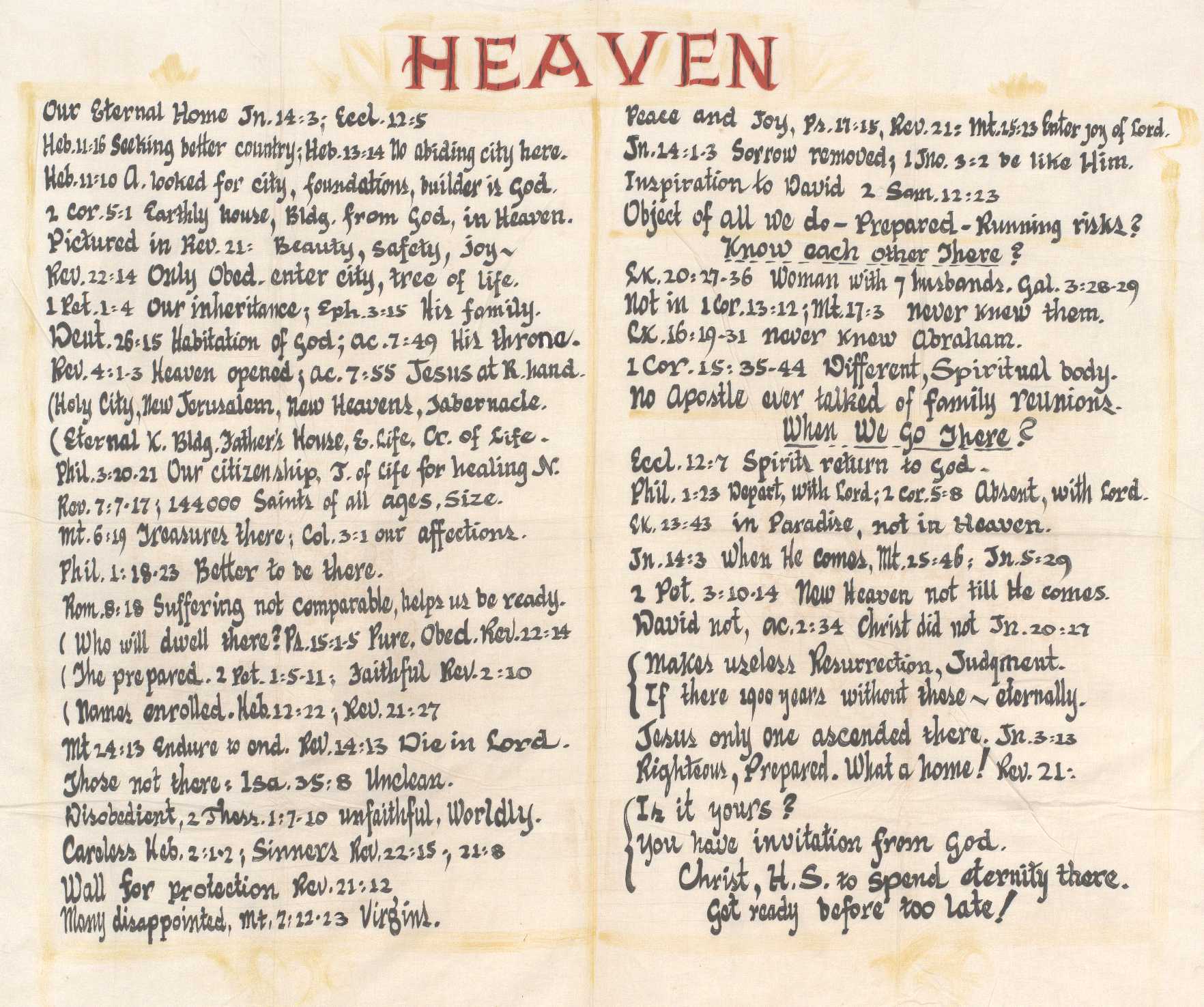
Bed-sheet sized sermon chart on Heaven, ca. 1940s-1950s. Abilene Christian University Special Collections and Archives, Brown Library. Abilene Christian University, Abilene, TX.
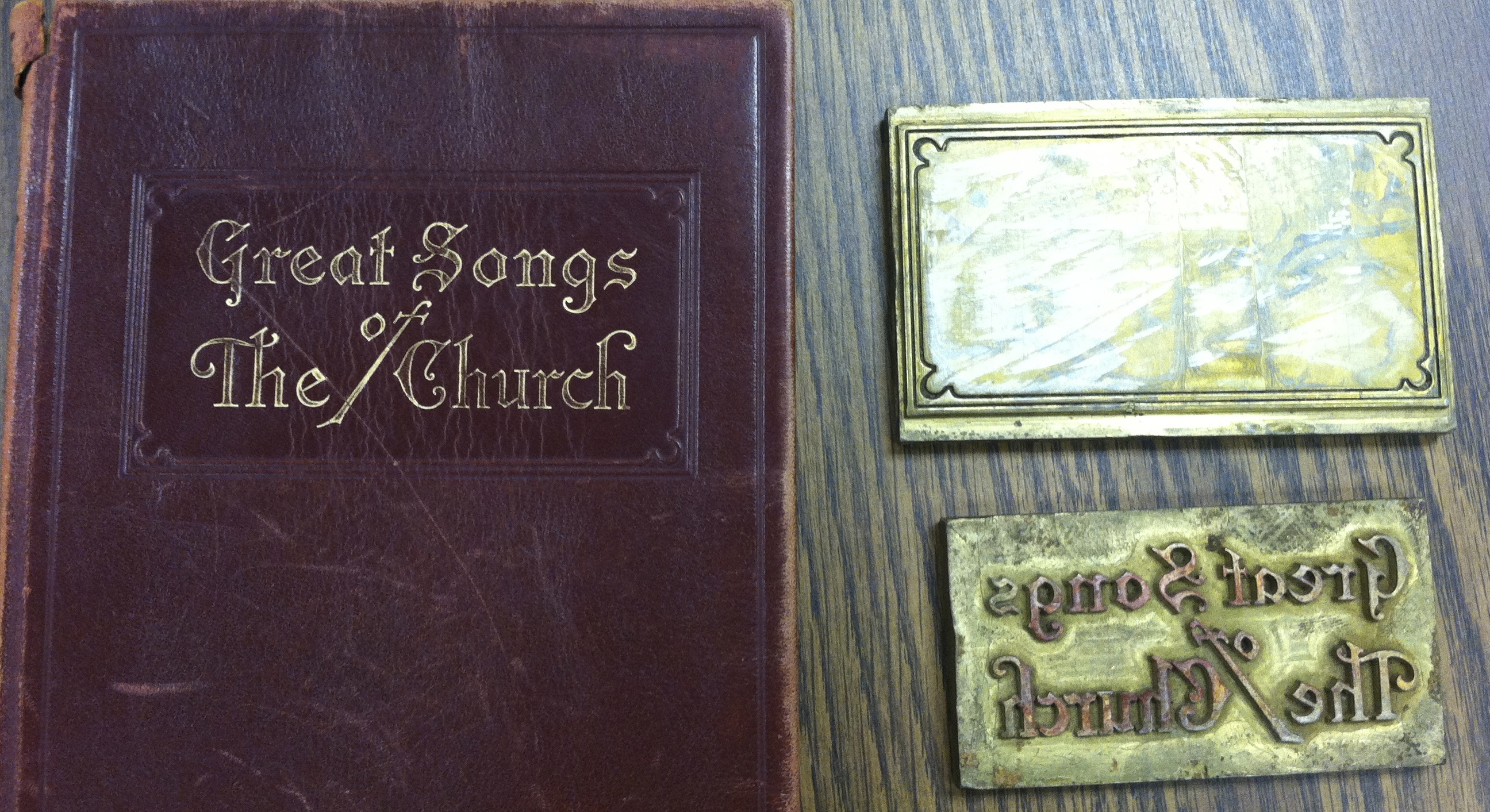
Brass printing plates used in the production of Great Songs of the Church. Abilene Christian University Special Collections and Archives, Brown Library. Abilene Christian University, Abilene, TX.
If you have materials like these you would like to donate, please contact Mac Ice, Director of Special Collections and Archives at mac.ice@acu.edu or (325) 674-2144. Mac will be pleased to discuss any aspect of the holdings and work of ACU Special Collections and Archives.

